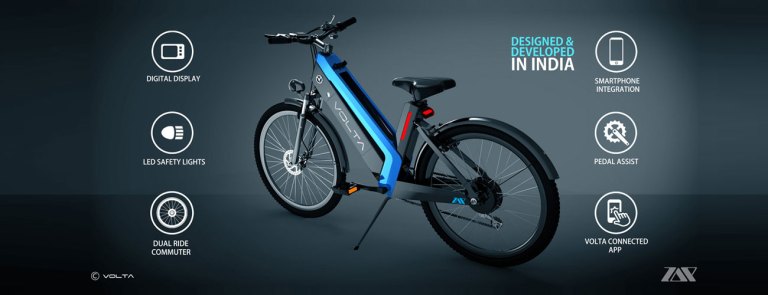
Photo credit: tec_estromberg.
For a nation that produces more engineers than the US and China combined, technology hardware innovations in India have been abysmally low. India’s preference is lopsided towards software and services. While the government has taken up several initiatives like Make in India and Startup India campaigns to encourage entrepreneurs to develop products here, one of the main challenges for the country’s hardware startup ecosystem is a lack of testing and development infrastructure.
When we talk about successful startups, it is always ecommerce ventures that steal the limelight. The imbalance is evident from the attention and publicity showered upon companies like Flipkart, Ola, or Snapdeal. Hardware startups, on the other hand, do not have it easy.
“From an investor’s point of view, software-based startup is preferred. Integrating and scaling up hardware requires manual intervention of engineers and requires constant updates. The product may also become obsolete in few years,” says Vani Kola, founder of one of India’s leading venture capital firms, Kalaari Capital.
There are several accelerators in India such as RevX, Forge, IoT Bangalore, and Intel Maker Lab that encourage hardware innovations, but these hardly make it to the market. Firstly, because creating a prototype is a long-drawn process, and secondly, due to the lack of funding for hardware.
To bring hardware startups to the fore, India’s IT tech body Nasscom’s 10,000 Startups initiative recently announced a new program, TechMarch 2016. It aims to build an ecosystem of smart hardware startups and prospective investors. Hardware startups will be provided with technical, marketing, and financial support, as well as leadership skills to build their applications and businesses.
A series of road shows and events were conducted across eight cities in India, including Bangalore, Hyderabad, Cochin, Mumbai, Ahmedabad, Delhi, Kolkata and Coimbatore. The initiative received over 300 applications.
The final seven startups pitched to a panel of judges including Kalaari Capital’s Vani Kola; Margaret Burgraff, vice president of Intel; Aveen Asrani, director at Microsoft; Uday Prabhu, head of IoT- Bosch; and Manjunath Hebbar, founder of Buoyanci. Five out of the seven startups were declared as the winners of TechMarch 2016.
Here’s a look in to the five winners that use Internet of Things (IoT) and cloud infrastructure to make your daily life a little more convenient.
Velmenni
It works where radio frequencies are restricted; can be used for alternate internet access in conferences and summits; doesn’t require licensing, and it is free.
This startup is an answer to India’s problem of low internet speed and crammed up radio frequencies which carry the network signals of your phone network among others. Delhi-based Velmenni has built new wireless technology for high speed data transmission of up to 1 GBPS, using light. Yes, light; from your LED bulbs, street lighting, and so on. It’s called Li-Fi. Deepak Solanki and Saurabh Garg started Velmenni in January 2014. They created some demos of Li-Fi in where they sent data through a laptop screen to a hardware device. Then they created a smart LED bulb which can be controlled through a smartphone, and changes color and intensity.
In July 2014, Deepak and Saurabh received an incubation offer and seed investment from Estonian hardware accelerator Buildit. Recently, it bagged US$100,000 in funding from Kalaari Capital. A complex technology, Li-Fi is used in very few research labs in Europe, Japan, and the US.
Advantages of such a technology are that it is very secure, because the spectrum of light will not penetrate walls or a certain area, thus limiting access for hackers. The technology can be embedded in smartphones to replace WiFi. It works where radio frequencies are restricted, such as defense areas. It can be used as an alternative internet connection in conferences and summits. It doesn’t require licensing, and it is free.
The team is also creating an in-flight entertainment system for smaller aircraft, which doesn’t have screens for individual seats. A small device can be connected to smartphones and laptops, receiving data through light.
Volta Motors

Electric bike Volta Zap from Volta Motors. Photo Credit: Volta Motors
Is it a bike or a cycle? While you mull over that, Volta Motors calls itself a crossover electric bike. The company claims that it outperforms all commercially available electric vehicles in terms of design, technology, travel range per charge, and cost. The startup is also developing an electric scooter concept with high range, speed, and efficiency.
Volta ZAP bike has capabilities to check heart rate and body mass, for those who are health conscious. It can be synced with your phone. And if the bike is lost, there is also a tracker.
The bike offers a 60 km range for a single charge without pedaling. The vehicle is fitted with an extra-regenerative battery that gives an additional 60 km range for the user. The operating cost of the vehicle is just around 7 paise per kilometre, which is more economical when compared with existing two-wheelers. The bike uses an advanced lithium technology battery which can also be used as a power bank for charging mobile phones and laptops, on the go. The top speed is restricted to 25 km per hour, but think of the green points you will score.
If the battery dies while you are on the road, just shift to pedaling. When you get back home, just remove the battery and charge it like you do with your phone. Since there is no license and registration process involved, the product reduces unnecessary taxation issues if you want to transfer the product anywhere across India. The bike costs US$525.
Cyclops MedTech
This medtech startup works on diagnostic solutions for episodic neurological events (ENE) like vertigo using eye tracking technology. Founded by doctor duo – D.R. Srinivas and Ravi Nayar – and entrepreneur Niranjan Subbarao, Cyclops addresses a niche healthcare segment which has largely gone unrecognized.
Srinivas has been treating patients with ENE for years. ENE is a group of commonly occurring and widely prevalent conditions, which often go undiagnosed. Close to 100 million people globally are chronic sufferers of vertigo, which is one of the most common ENEs. The diagnosis is usually dependent on the patient’s account and has no formal tests to know for sure if one is suffering from it.
Srinivas and Ravi wanted to work out a system that will capture 100 percent accurate data, without having to rely too much on the inputs from the patient. The device developed by Cyclops is a wearable tech similar to a heart monitor, which the patient can take home. The observations can be shared with doctors in real-time. The development team of Cyclops was incubated at Centre for Biomedical Innovations at BMS College of Engineering, Bangalore.
Its first product, Balance Eye, is a clinical diagnostic device for diagnosing vertigo, balance disorders, and strokes with dizziness symptoms. It is meant to be used by neurologists, ENT specialists, audiologists, and emergency medicine specialists.
ThingsCloud
This startup develops clean tech devices that are focused on artificial intelligence. It has four products – ThingsHiFi, ThingsWiFi, ThingsCloud, and ThingsApp.
ThingsHiFi is a solar-grid-tie inverter that connects to typical rooftop solar panels and can be used to supply excess power back to the grid. ThingsWifi is a plug-and-play device that can monitor energy consumption from any device at home or workplace. ThingsCloud and ThingsApp are cloud and mobile applications on which the data is hosted and monitored.
ThingsWiFi is a smart switch that connects to traditional electrical equipment which can track essential parameters and send device-specific data back to the cloud where this data is intelligently interpreted. The analysis of profiling is available on mobile apps accessible to customers.
Traditionally, setting up a solar energy system on your rooftop is expensive and it will take about six years to earn back the investment. With ThingsCloud HiFi, the time is reduced to three years. The consumption and excess power generation can be monitored remotely via a phone or a laptop. It also has a battery where solar power can be stored for use during emergencies.
The startup has tied up with Kotak Urja, Tata Power Solar in India, German off-grid power solutions company Phocos, and Stealth Power of USA that creates smart mobile power solutions.
IOT Pot

The smart stove knob from IOT Pot. Photo Credit: IOT Pot
IOT Pot develops smart kitchen devices that aim to make cooking safe and simple.
Its first product is BurnerBuddy, which is a smart knob that monitors the cooking time for you, while you are away doing other chores. It’s a simple device that you can simply mount on your gas stove knob. Plug it, switch it, and tell it what is cooking. The knob will determine the cooking time automatically and switch off when it is done. If you are not satisfied with the time range it has taken, you can simply tell it to change and it will obey. You can also set a reminder on the knob.
For example, if you are in a hurry to leave home, unmindful of those eggs you put to boil some time ago, it will warn you. The company is set to tie up with TTK Prestige to distribute the product as an add-on, and also with ICICI Lombard for home insurance purposes. WonderChef has also expressed interest in the product. In the future, you will also be able to control the functions via your smartphone app. It is still in development stage.
This post 5 new hardware startups aiming to simplify your daily life appeared first on Tech in Asia.
from Tech in Asia https://www.techinasia.com/5-cool-hardware-startups-in-india
via IFTTT
No comments:
Post a Comment